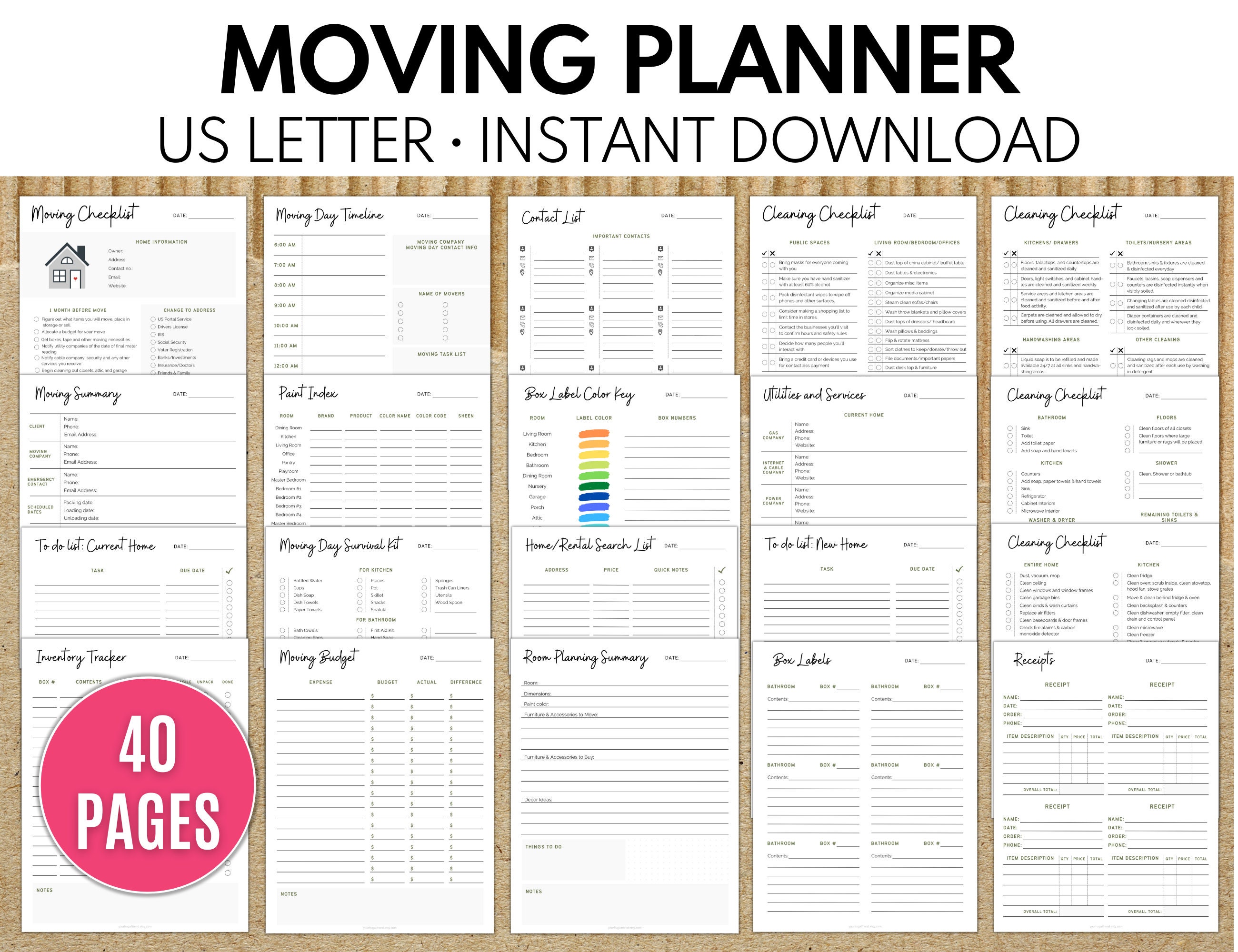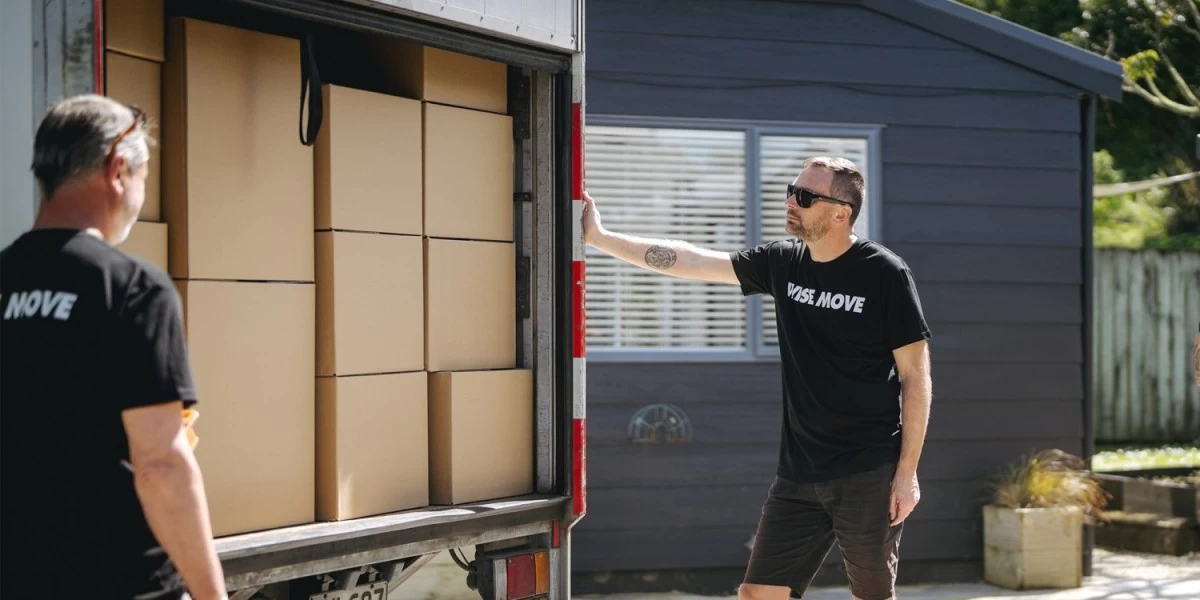Whether it is for business, or to reunite with dear ones, for learning, or because got a new job, moving is really a pain in the neck.
From searching for the right apartment, or the right house to purchase to arranging your items and figuring out how they will get from point A to your new home across state or country, moving long distance can be as draining as it is stressful.
In this article, we shall discuss the challenges of long distance moving, the tips and the cost of moving from one state to another.
What is Cross Country Move?
Cross-country move involves moving from one state to another. It is the transportation of goods from one state to another. Interstate relocation requires a particular permission when it comes to accomplishing any aspect of a move across states. This special authority is granted by federal regulators.
The law also requires cross-country moving companies to have specific insurance policies. These regulations are relevant as they hold secure the clients and the public in large.
The Challenges Of Cross-Country Moving
Planning a cross-country move can come with several challenges. For example, it can be difficult to locate a proper house to live in when you get there, not to mention when you lose your job in case you had one. Furthermore, you probably have no acquaintances in your intended location.
Therefore, it is normal sometimes to feel lonely because once you get back in the social circle, it may take time to make a lot of friends.
More importantly, it is very tiring and stressful to pack all your belonging in preparation of seeking another home in a new region/area. It is also important not to lose sight of the more dreadful thoughts that may be annexed to the loss of some of your things, or even their destruction.
The Importance Of Hiring A Professional Cross-Country Moving Company
The beauty of it is that if you hire a cross-country moving pro, most of the work will be done by someone else. They will move your furniture, your boxes, your clothes even while on the move.
These professionals understand precisely the right place and right manner in which to place your items when they are being transported so as to avoid damage. Another is that they will also be communicating with you frequently regarding your shipments, so you will also be up to date on them and their locations.
In a nutshell, here are some convincing reasons to hire a professional mover during a cross-country move.
a) Experience
Professional movers are among the most skilled for the simple fact that they have dealt with many such operations. They understand how to wrap and move your belongings in an efficient so that the items will reach the destination in the same condition.
b) Logistics
They will handle all these stresses for you which will enable you to attend to other matters including moving to a new home.
c) Peace Of Mind
A professional mover can also help you reduce stress associated with having your property such as dishes broken, while guaranteeing that all your property arrives in your new home safely.
d) Savings
They can save you time and your money by taking professional steps starting from packing, sending, receiving, and unloading and etc.
e) Fast
An efficient moving company will provide you with a time frame in terms of the time your valuables will be delivered to your new home. The honor of many companies is to offer efficient and courteous service.
Tips for a Smooth and Affordable Cross-Country Move
1. Plan Your Move Early
Failing to plan is a plan for failure, so they say. With this in mind, there is nothing wrong with beginning to arrange for your cross-country move as early as possible. This way you will have enough time and several weeks will provide an excellent opportunity to find out more about various moving offers and to receive a number of quotes from various companies.

Image source: etsy.com
If you use a moving checklist you will not only save a lot of time but also you would not forget any other stage of the moving process. Therefore, it also helpful to have what is called checklist handy.
2. Declutter
Long-distance moving costs are also very high, meaning you only want to take along accessories for your new home. A good idea would be to let go of any items that you do not want or need at least two or three weeks prior to your planned relocation.

Image source: closetamerica.com
You can do so by selling or even giving them away permanently, to those who might needs the items. Apart from ensuring that you could also save money during the move it also makes the packing and unpacking easy.
3. Choose A Reputable And Affordable Moving Company
To be honest, not all professional moving companies are the same or even their moving rates for interstate moves.
Thankfully, the internet is home to tons of tips and information on how to look for affordable long distance moving services within your region. The cost of moving can vary by tens, if not thousands, of dollars depending on the company, so it is important not to make the decision until you’ve gotten multiple estimates.

Image source: wikipedia.com
Do not rely on phone-call or online estimates. For an accurate cross country moving quote, then consider getting home surveys from actual cross country moving companies.
How to Choose a Cross-Country Moving Company
Here are a few things to keep in mind;
a) Ensure the company is insured and licensed.
b) Be on the watch for extra costs.
c) Avoid moving companies that keep switching their names.
d) Avoid country movers that ask for a deposit.
4. Consider Packing In Advance
It is important to ensure that all of your items are ready to go in the boxes before the moving company comes. This not only makes it easier to ensure your goods do not get damaged as you transport them to your new home but may also save time and cost used in the exercise. However, you would have to learn if at all the mover you are choosing affords you the privilege of doing your own packaging.
5. Keep Valuables and Necessary Items Close
Even though you may want to trust your movers and ensure they will be safe and careful, there may be some things you do not want to take a chance with, such as small antiques, jewelry, other valuable items and breakable items. You also have to carry your important documents with you. Others are legal documents such as birth and marriage certificates.
Moreover, you will need a suitcase packed with items that your family will be using throughout the move process. Some examples of such items are; soap, shampoo, toothpaste, suppositories, you know, clothes, baby products, polyethylene bags, anything you may think you would need.
6. Document the Condition of Your Items
It is important to compile a list of all your items before moving. One way through which this can be done is by taking picture of all the items that are supposed to be moved. This way if an item is lost or damaged you will be able to go for compensation for the lost or damaged item.
7. Purchase Moving Insurance
There are conditions that need to be met before you formally hire a particular moving company. Make sure your valuation coverage options are present. Several firms provide protection free that is however basic and hence only affords preliminary degree.

Image source: mymovingreviews.com
If you want to have your fragile items safer during the move, you can obtain moving insurance. You can get Full Value Protection. Buying moving insurance from third parties also guarantees total protection for your possessions
8. Set Up New Utilities
At least three days before moving, if not weeks, visit the utility company and inform them about your move. Request them to terminate your utility and service such as internet, gas, phone, cable television, electricity and trash among others. Your realtor or your landlord is supposed to avail the list of local utility information to you.
Furthermore, call the relevant utilities at the new place and tell them when one wants utilities connected. This is important especially because once you move into a new house, you need your services to start immediately.
9. Cancel Old Services
Request to have halted all the services that was accorded to you at your previous residence. These may include gardeners and pool service personnel, cleaning company, pest control service personnel and any other person who requires entry into the home on a regular basis for maintenance work.
10. Weigh the Cost of Car Shipping
Cross-country moves can be really demanding, especially when you find yourself in a dilemma as to whether to sell the car, ship, or drive the car all the way. If you want your car to be as good as new even after the move, then shipping is most probably the way to go. This way you do not exert pressure on it more than you should when using it more often for your business.
Driving is also an option especially if you prefer to tour round the city. And at the way there are many interesting places to visit. You can, for instance, choose to auction it later, or simply avoid buying a new one in case you want to use it for sometime.
11. Change Address
The USPS makes it easier to complete an official change of address form. You may schedule your change of address on the website up to three months before you relocate. You also can also change it immediately after the relocation but it is rather dangerous as several letters can easily get lost.
Image source: vts.com
There are up to four ways how this could be done including when in person, at the nearest Postmaster’s or USPS office, by phone, by mail or online.
12. Be Prepared For Unexpected Expenses
Finally, moving is often associated with certain uncertainties. When buying your moving supplies, it is important this be done within your budget so that you have some cash that can be / will be used to cater for some other incidental expenses that you may come across when moving.
Most people fret at the idea of moving, more so if the new house is located several hundred miles away. However, a cross country move becomes way much easier if you let the professionals handle it.
13. Have an Unpacking Plan
Packing is usually such a hassle and then unpacking is even worst a nightmare. But, you have to do it, so have a plan. So what you are going to do is from the essentials bag, unpack little by little once you get to the new house. You will also need beds for the night and so can also work on that right away if you have the time.
Image source: megansmoving.com
Next, focus on the kitchen. When a kitchen is functional, you’re able to feel quite at home. You do not have to open all the things at once or even within the first week of arriving at your new home. However, more often than not, when you are designing your home, you may wish to get a housewarming party so you can complete the packing so as to meet the deadline.
Do’s and Don’ts of Cross-Country Moving
We shall take you through the do’s and don’ts of cross-country moving. This will help you know mistakes to avoid when moving.
Do’s
a) Take Inventory
One of the most important things to do when moving across the country is to take inventory. Whether your belongings are packed by the movers or you do it yourself, taking inventory of everything matters.
b) Label boxes with identifying information.
Pack the boxes and label each one with the necessary information that will help you know what is where when unpacking.
c) Choose an insured moving company
You need to hire a moving company that is insured. Professional movers should carry certain types of insurance. However, some companies may not offer all the coverage you need.
Ask for proof of insurance before you hire cross-country movers. This is just for you to be sure.
d) Ask the movers how they deal with fragile goods
Different companies have different policies on how they deal with fragile items. Ask your selected company how they deal with such items and whether or not they insure the items.
An example is that some companies do not insure against damage for items that were packed by someone else.
Don’ts
a) Do not pack your valuable items to be moved by the cross-country movers.
Do not load them into the truck to ensure they get there safely. You can trust a cross-country moving company once you confirm its legitimacy, however, a lot can happen during the transit.
So, to minimize the risks, keep your valuables with you. Even the moving company may advise you to do so.
B) Do not hire movers based on price alone.
Moving cross-country will require you to get moving quotes from different movers before you finally settle for one. However, price alone should not be your mode of selection.
You may be tempted to use the cheapest movers who may not do the job well for you. Consider the company’s reputation to ensure you select the right people for the job at hand.
c) Don’t use new packing boxes
Do not use new packing boxes and other supplies when moving. Using brand-new supplies is costly and they still end up in the recycling after all. You can try to find slightly used boxes from an online marketplace or through moving companies.
d) Do not wait till the last minute
Do not wait till the last minute to do what you need to do. This includes buying packing supplies, packing, and even hiring movers. If you leave everything to be done at the last minute, your move will probably be stressful. You can avoid all that by starting sooner.
Cross-Country Moving Costs
When moving across the country, you are likely to use about $2,000-$8,000, depending on the moving company you chose and the transportation method. However, a coast-to-coast move may be even more expensive and can get to an average of $2,200-$15,000.
Movers will generally provide you with a cross-country moving quote. However, this may be just an estimate with more charges to be added later. Though moving costs tend to exceed the estimations, they should not move too far from the general price range that you map for your move.
To make it easier for you to get the cross-country moving quote, you may need to do your inventory accurately and track the items that will be going. This will be even easier if you could get the individual size and weight of the specific items, and how you plan to pack them.
Factors Affecting Cross-Country Moving Costs
Besides moving distance, other factors affect the cost of moving cross country. They include;
a) Moving Distance
How long is the distance between your current state and where you want to relocate? The distance to be covered is the main determinant when calculating cross-country moving costs.
b) Household Size
How large is your luggage? Traditional movers estimate the cost of your luggage based on its weight, which varies from the estimate to the final cost. If you opt for a portable container or rental truck, the pricing will be based on the size of the container or truck.
c) Moving Supplies
You will need essential moving supplies to smoothen your moving experience. Some of these include moving blankets, and packing materials like boxes, among others. The total cost of this equipment can range from $100-$125 for a studio or $175 and above for a 2-3 bedroom house.
When working on the total cost, traditional movers include shrink wrap and moving blankets in their quotes. However, if you decide to do the packing yourself, you will have to buy the supplies.
d) Season
Movers normally increase their rates between May to August. This is their business time, so if you plan to spend the minimum amount possible, consider moving outside these months. When the cross-country movers are not as busy, the prices slightly go down.
The timing also matters. Therefore, consider moving on a weekday rather than during the weekends. This way, you are more likely to get better deals.
e) Fuel
If you are using a renting truck, be sure that you will have to add the cost of fuel to the total moving cost, especially if you’re moving a long distance of about 2,800 across the country. Also, don’t forget about the fuel surcharge penalty if you fail to turn it in with a full tank.
However, for portable containers or traditional movers, you will not have to pay any extra charges as the cist of fuel is included in the total quote.
f) Storage
If you’re moving across the country, you may need storage services. This is usually because you may need to land in a temporary home as you get to know your new residence. Portable containers help a lot when such times come.
If you used traditional movers, ensure you ask about the conditions and costs. If you rent a truck, you’ll have to pay for another truck rental and self-storage.
g) Labor
If you decide to use a professional moving company, the movers will load and unload all your belongings. However, if you also want them to pack and unpack for you, you will have to pay for that.

Image credits: wisemove.com
On the other hand, with portable containers and rental trucks, you can hire and pay movers only for the services you need.
h) Insurance
When moving, your items could be at risk. Therefore, you may need insurance either from the moving company or another insurance company. You may also need additional insurance for your high-value items like art, jewelry, and artwork.
Even if your mover offers liability coverage, it is essential to know what it covers and what it doesn’t cover. This is because the company’s free protection covers only the bare minimum.
You can pay for the Full Value Protection which holds the movers responsible for the actual value of all items. However, you should understand that this will cost you a lot more.
i) Scheduling
Sometimes we get into situations that we cannot get out of. Such circumstances may make you reschedule your moving dates, which will impact the charges. Traditional movers can charge up to $500 for rescheduling. Truck rentals are slightly easier to change dates, but they also charge late fees.
j) Transportation Method
The method of transportation is highly affected by where you’re moving to. For example, you may choose truck rentals which are typically less expensive than shipping your belongings on a plane or transporting them in containers loaded onto ships.
Frequently Asked Questions on Cross-Country Moving
1. How long does a cross-country move take?
Since cross-country moving involves moving across state lines, the distance involved could be quite a lot. So, it may take between a couple of days to a few weeks. However, if you are moving to a neighboring state, it could only take a couple of days. But generally, it all depends on your situation and your movers.
2. How much does it cost to move cross country?
Cross-country moving costs vary depending on various factors including the company involved, the distance to be covered, and the weight of the items to be transported. So, to get a reasonable cost estimate, get quotes from at least three moving companies. This gives you the chance to select what works best for you.
3. How can I prepare to move across the country?
Moving across the country requires a lot of preparations on your side. You need a few cross-country moving tips to make the process as smooth as possible. You can;
- Plan carefully and start earlier
- Declutter
- Pack essentials separately
- Vet your movers
- Label the boxes
4. How can I move cross country cheaply?
Moving is expensive and it is understandable if you want to minimize the costs as much as possible. Some of the ways to move across the country cheaply include;
- DIY more
- Selecting cheaper moving dates
- Declutter
- Ship your items
- Find free moving supplies and boxes
- Ask for help from friends and family
- Get multiple moving quotes
- Look for discounts
5. Can I leave clothes in drawers when moving?
No, it is not advisable to leave any of your belongings in the drawers when moving. They tend to shift around as the truck moves and this can cause unwanted damages.
6. What do you pack clothes with when moving?
Cardboard boxes are the best for packing folded clothes. You can also use duffel bags and suitcases to pack your clothes after folding.
7. What is the 20-20 decluttering rule?
This is a rule that you can use when you can’t decide what to keep and what to let go. It states that you should consider letting an item go if replacing it will cost less than $20 and 20 minutes.















